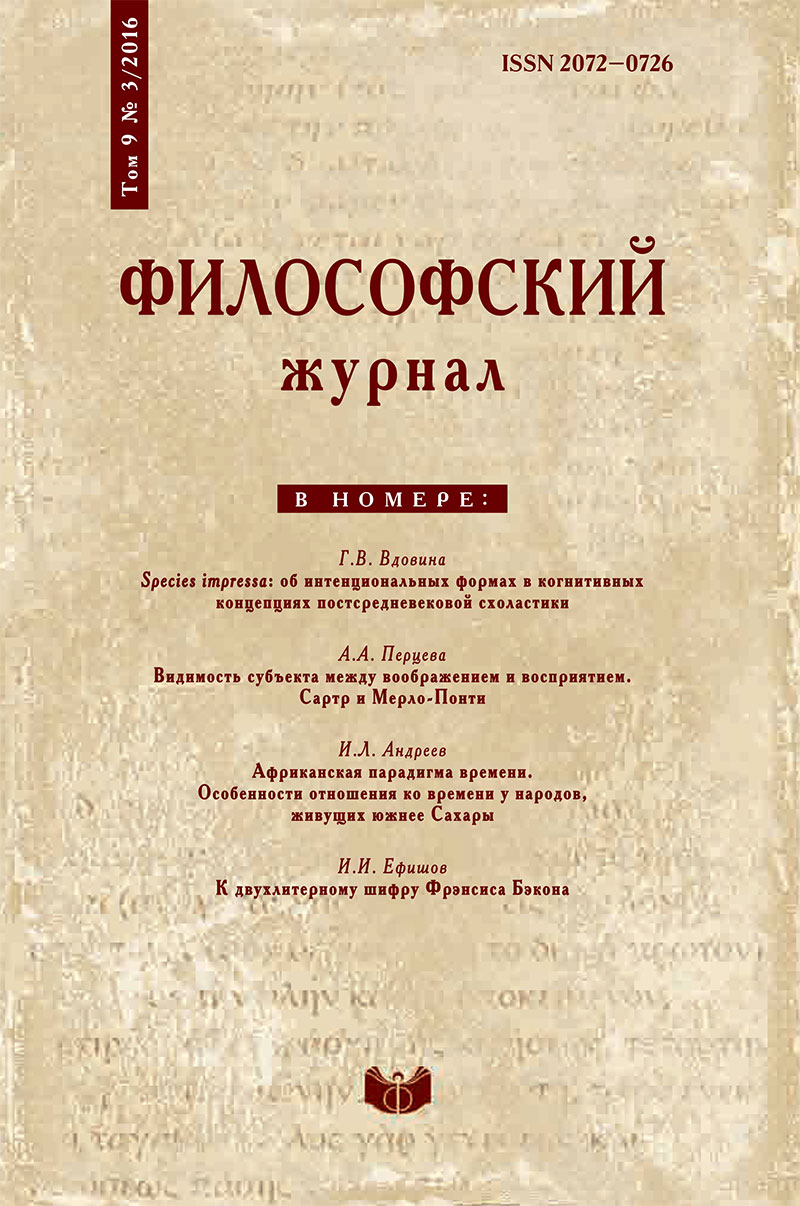On the sense of Being and the meanings of beings
DOI:
https://doi.org/10.21146/2072-0726-2016-9-3-59-76Keywords:
Being, existence, beings, essence, quiddity, “ontological difference”, history of ontologyAbstract
Once having grasped the distinction between Being and beings (Sein und Seiendes), it is no longer possible to study the history of ontology without understanding the forgetfulness of Being. The purpose of the present paper is to clarify the “ontological difference” by inquiring into specific cases from the history of philosophy and, on the other hand, to outline the limit beyond which one cannot go back in time when speaking of Being. It can be argued that there is nothing methodologically incorrect about such an attempt, since the distinction of Being and beings appears to have been known long before Heidegger and started to take shape already in ancient Platonism. There is ample evidence for this in the lexicon of Greek ontology, focused as it was on the study of beings, or things. By introducing the concept of essence, Plato established for ontology a new and specific perspective which had a determining influence on European metaphysics. This work was continued by Aristotle who distinguishes between the different meanings of beings but fails to clarify the underlying unity behind them. It was only Heidegger who gave the question of Being an unambiguious formulation by making “ontological difference” the foundation and starting point of his philosophy. With this difference in mind, one is able to discern the core of the debate between Thomas Aquinas and John Duns Scotus, which sheds light on how Being was conceptualized during the Middle Ages. From the above it becomes clear that Being has only one meaning, whereas beings are said in many ways. Being is predicated of all things but is identical with none of the things of which it is predicated, because Being excludes multiplicity. Despite this, Being is not the one, since by its nature it is in no way related to number.






